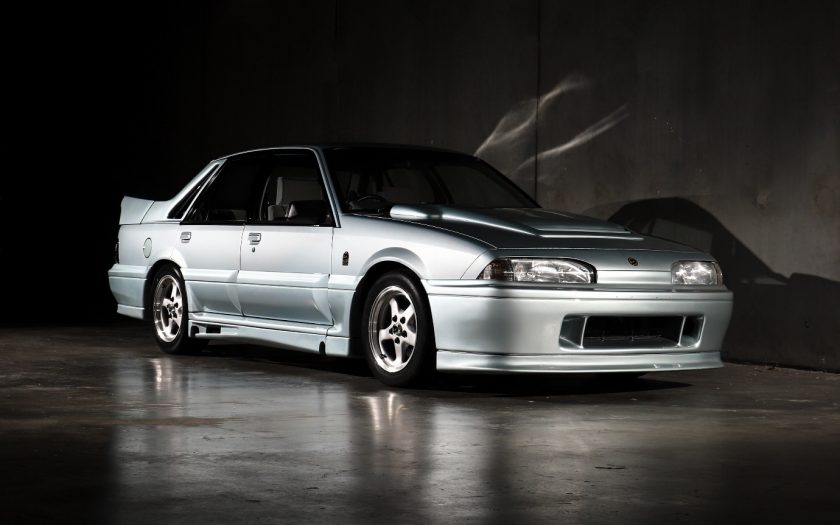FIRST OWNED BY ONE OF AUSTRALIA’S most respected touring car drivers and team owners, parked beside the first ever SS Group A Walkinshaw built and thought lost to time, Holden’s very last 1988 VL Commodore SS Group A Walkinshaw, #750 of 750 built, has resurfaced in Sydney as a family prepares to bid farewell to the iconic piece of Australian automotive history.
Sporting just 19,699km on the clock and wearing its originality with pride, VL Walkinshaw #750 is being placed on the market for the first time in almost 30 years after being lovingly owned by a South-West Sydney family who boast a history with the vehicle full of highs and lows.
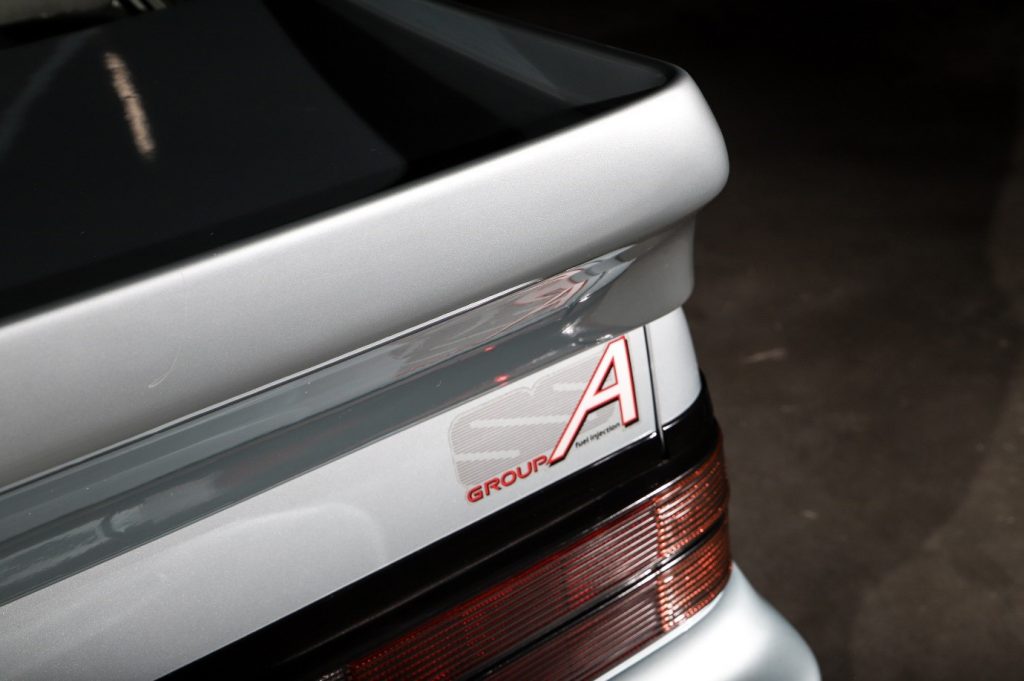
First delivered by Parker Brothers Holden in Colac, Victoria, to Australian touring car driver and team owner Bob Forbes, Walkinshaw #750 was always intended to be an investment (we think it will prove to have been a very canny investment!) and was never raced. Forbes, who competed in 13 Bathurst endurance races and later formed Bob Forbes Racing – running several GIO Insurance-backed vehicles, including Group A Walkinshaws and Nissan GTRs – held onto the vehicle for nearly a decade.
During that time, the car accumulated just 1140 km when it was driven from Colac to Sydney by Forbes on a trade plate and then parked up. Remaining unregistered for a decade, the vehicle then found its way into the custody of Suttons Motor Group in Sydney, where it was first advertised via the dealer group’s Scuderia Veloce site in Willoughby – with a small newspaper advert highlighting the vehicles ‘investment potential’.
In parallel, a South-West Sydney family, consisting of four daughters was enjoying the throaty roar of the Walkinshaw’s twin throttle-bodied 5.0L V8 in Walkinshaw #708. Purchased by the family’s father, Nick, after lusting over the car for decades, Walkinshaw #708 earned its keep as the family car, plying between home, the shops and family gatherings.
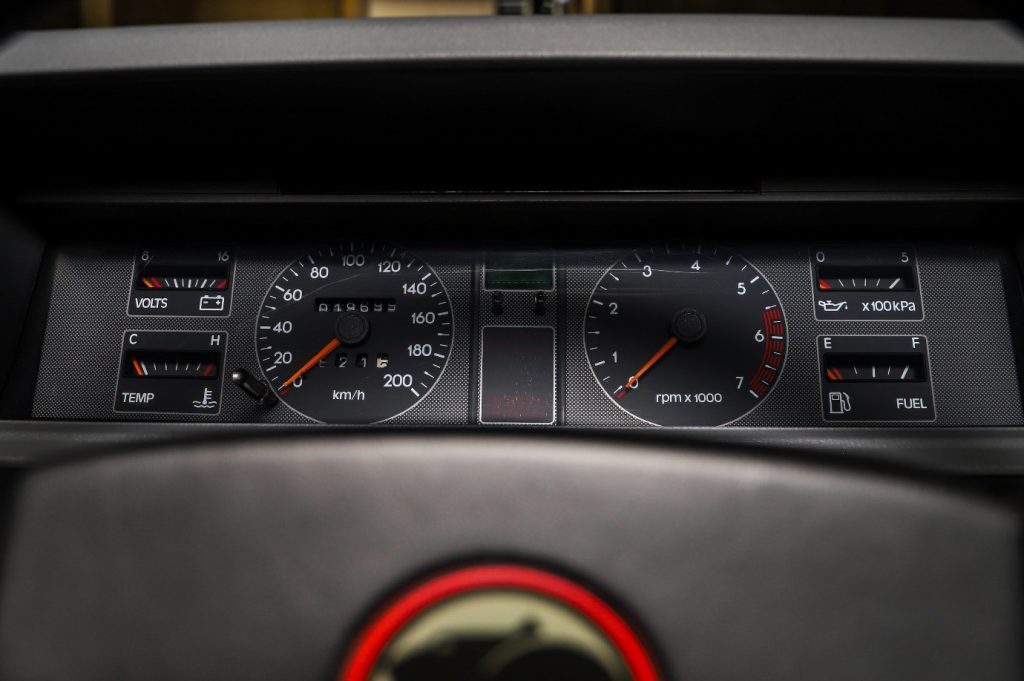
Eldest of Nick’s daughters, Simone remembers the vehicle as nothing special, “As kids of 10 years old, we had no idea what this car meant and being girls it was the older brothers of our friends that would say ‘Oh my god is that your Dad’s car?’. To us, it was just another car that Mum would drive everywhere when Dad was at work.”
Third daughter, Vanessa picks up the story, “Later, we started to understand that this car was something special particularly when Mum was left stranded often because someone had attempted to steal it and she was waiting for roadside to help get it going – until one day in 1997 someone successfully stole our first one, Walkinshaw #708”.
As fortune would have it, Nick was driving past Suttons City Holden Rosebery, where the Bob Forbes-owned Walkinshaw #750 had been moved to, to reside side-by-side with VL Walkinshaw #001 – the first and last time the bookend vehicles were together.
Still unregistered and now with just 1160km on the clock, Nick stopped, marched into the dealership, and demanded that one of the two Walkinshaws on the floor be sold to him. After much negotiation, the dealer relented and in January of 1998, the family took possession of #750, the last ever SS Group A Walkinshaw built.
The return of a Walkinshaw to the family garage felt like closure for the family with youngest daughter, Danielle recalling, “I remember Vanessa, Mum and I standing in the garage of the house as Dad rolled down the street and into the driveway, I just can’t forget the noise – it was unmistakable.”
Second daughter Melissa recounts how the Walkinshaw was used sparingly over the following years, “While Dad was glad to have his dream car back after our first Batmobile [Walkinshaw] was stolen, I think there was always a sense of caution about how #750 was used – we still loved having it and remember the house rumbling when it started.”
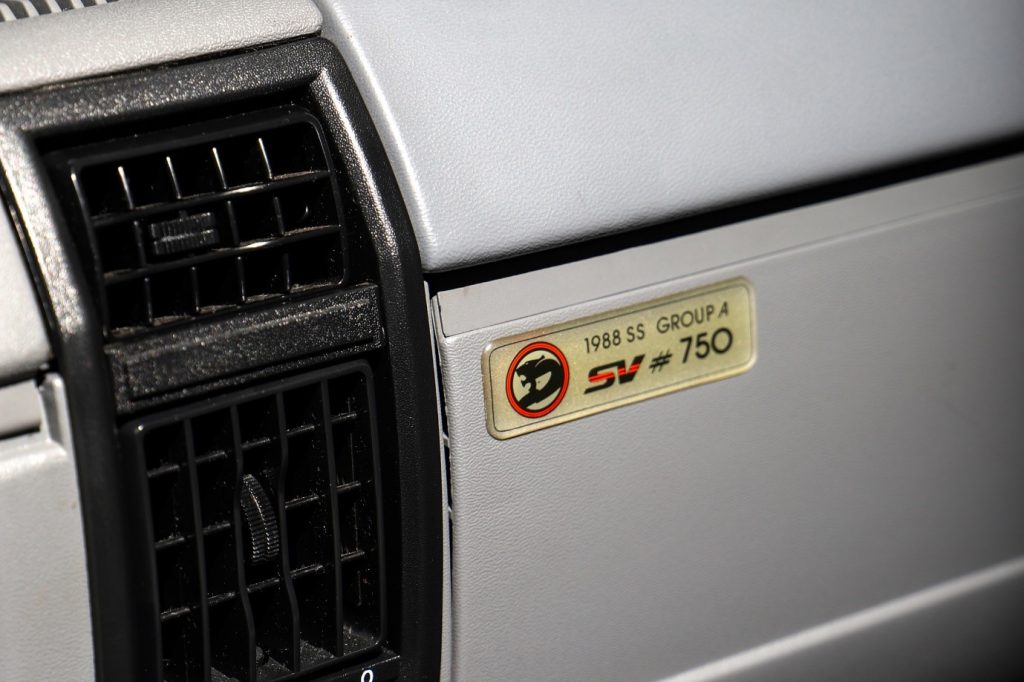
Under lock and key, and used sparingly over the coming years, the VL Walkinshaw came out for special occasions and little else, one such occasion was Vanessa’s 21st birthday – coincidentally the same year the Walkinshaw marked its 21st year. The fondest of all the sisters of the car, the keys to #750 were handed to Vanessa as a birthday present on the condition that if the vehicle was ever sold, it was to benefit all four daughters.
Vanessa, who has been the custodian on the car since explains that day has now arrived, “It’s funny to think that we have such an emotional bond with a 36-year-old car, but in speaking with my sisters we agree that the time has come for someone to take over the responsibility of caring for what we now understand to be a significant piece of Australian history.
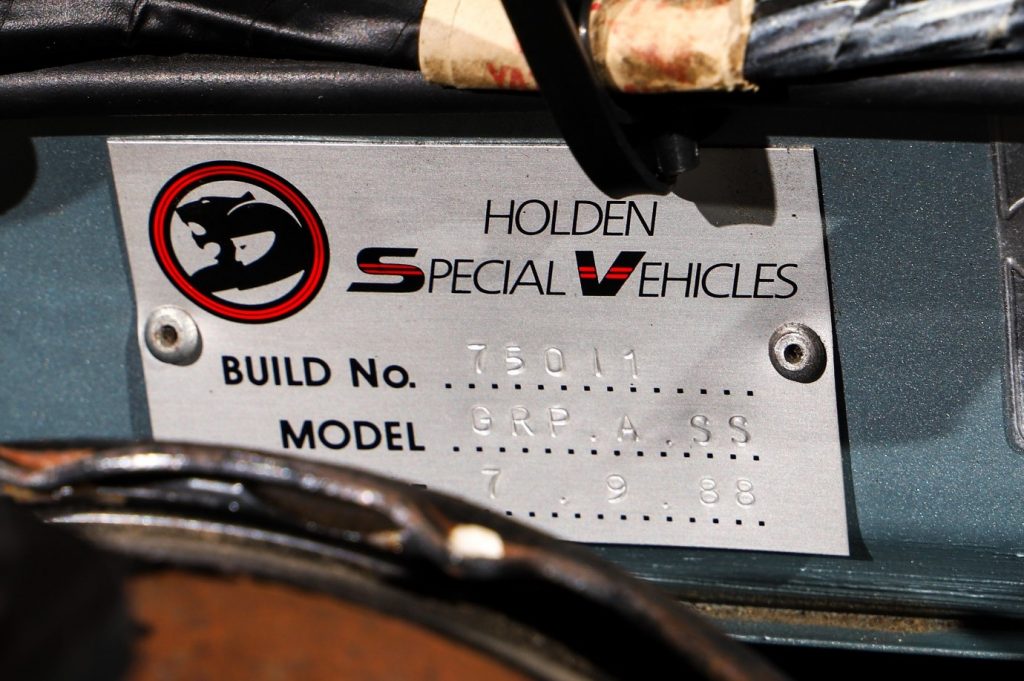
“While we have said our goodbyes, we are in no rush to sell her [#750] and therefore, our hope is that we find a new owner that is able to continue to build on the history of this vehicle, or place it back in the context of history. The sale means that I and my sisters will be able to build new memories for our families in the future.”
The sale of the vehicle will be managed via Stag Auto Solutions, a boutique Sydney-based automotive business with a combined 65 years of experience in bespoke, collectable and high-end vehicle sales and consignment.
Stag Auto’s Shaun Mackle said, “When it comes to collectability the first and last of limited production vehicles are the ones to have. Walkinshaw #750 is not only the last vehicle of its kind, it also boasts an amazing ownership story and an untouched originality that many seek. This is a car deserving of its place in Australian automotive history and someone’s collection.”
Listed on the company’s website and a variety of other marketplaces with a ‘price on application’ the Walkinshaw will be available to view for qualified customers from December 2.
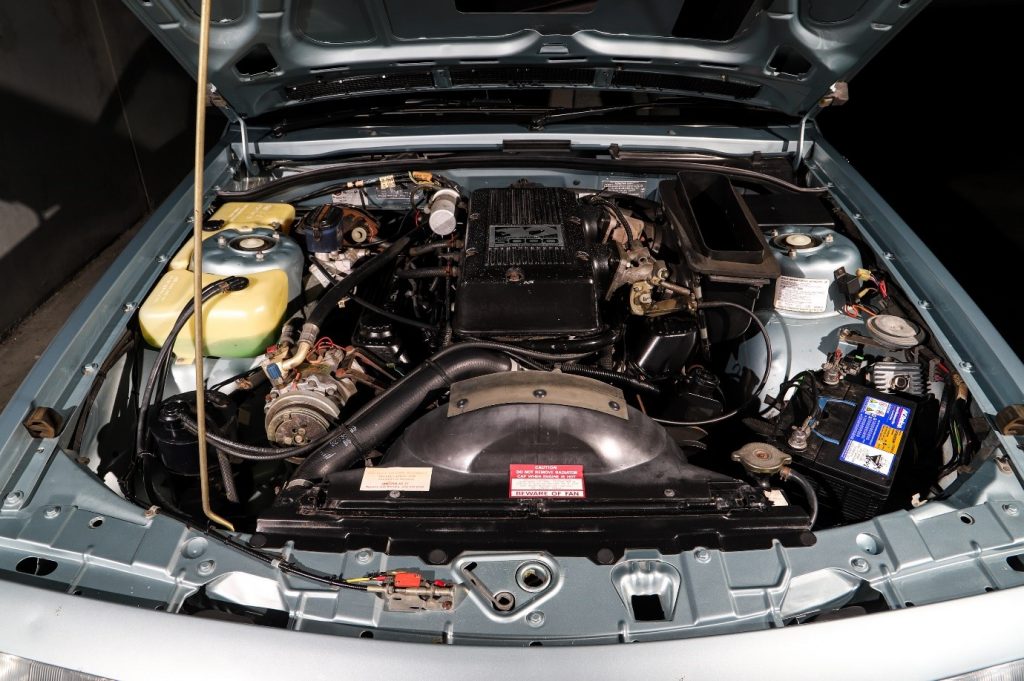
THE HOLDEN VL SS GROUP A SV WALKINSHAW
The Holden VL Commodore SS Group A SV, famously nicknamed the Walkinshaw, Batmobile and Plastic Pig, was developed in 1988 as a homologation special to comply with Group A touring car regulations. To compete in Australia’s Group A Touring Car Championship (the precursor to V8 Supercars), Holden produced 750 units of this Special Vehicle (SV). While not technically badged a Holden Special Vehicle (HSV), it is widely regarded as the catalyst for the formation of HSV road vehicles shortly after.
Enforced by the Federation Internationale de l’Automobile (FIA), the rules required manufacturers to produce a minimum of 500 road-going versions of their race cars, later raised to 5000 globally, with exceptions for smaller manufacturers such as Holden that allowed them to homologate with 500 units for national championships.
Group A rules emphasised power-to-weight ratios, aerodynamics, and reliability over raw engine capacity, encouraging manufacturers to create advanced, lightweight, and aerodynamically refined designs. The Walkinshaw adhered to these principles with its aero-enhanced body kit, engineered by Tom Walkinshaw Racing (TWR). This kit, with its striking scoops, wings, and flared arches, reduced drag while increasing downforce, making the car more competitive on high-speed circuits.
At the heart of the Walkinshaw was a re-engineered version of the Holden-designed 5.0-litre V8, tuned by TWR to produce 180 kW (241 hp) and 380 Nm (280 lb-ft) of torque. This output, combined with a relatively low curb weight of 1,360 kg, made it a strong performer in both road and track settings. The Borg-Warner T5 5-speed manual gearbox provided precise control, further enhancing its racing capabilities.
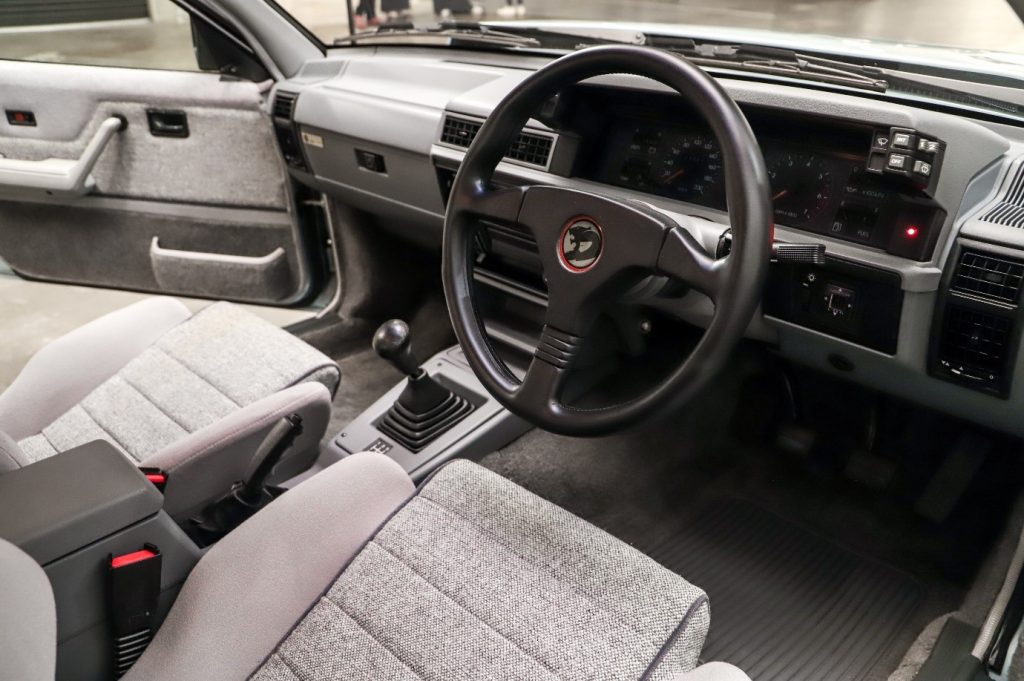
Technical Specifications with Group A Relevance
| Specification | Details |
| Homologation Requirement | 500+ units; 750 produced |
| Engine | 5.0L Holden V8 |
| Power Output | 180kW (241hp) |
| Torque | 380Nm (280 lb-ft) |
| Transmission | Borg-Warner T5 5-speed manual |
| Aerodynamics | TWR-designed body kit; reduced drag |
| Weight | 1360 kg |
| Top Speed | More than 240 km/h |
The Walkinshaw’s advancements ensured Holden’s competitiveness in Group A racing, taking out numerous events spanning the Australian Touring Car Championship (ATCC) and the prestigious Bathurst 1000, solidifying its place in Australian motorsport and motoring history.
